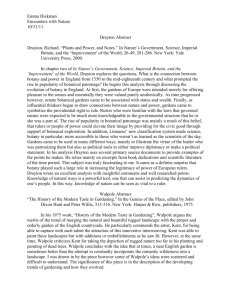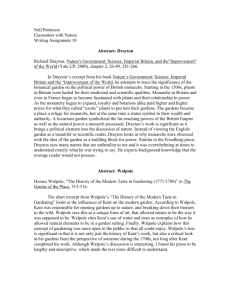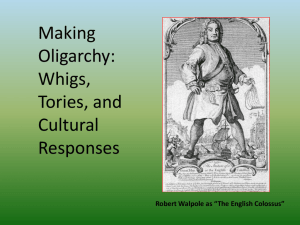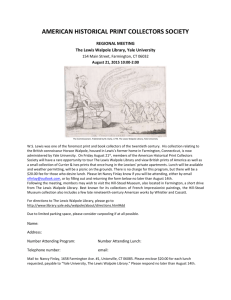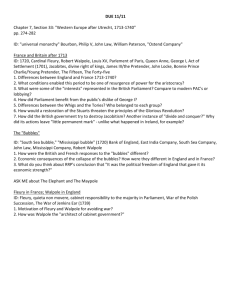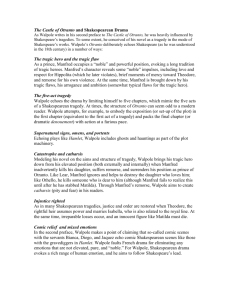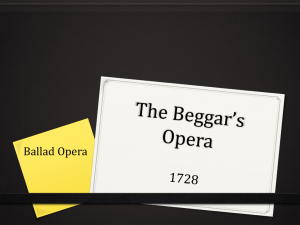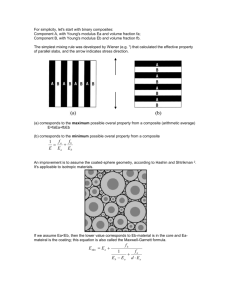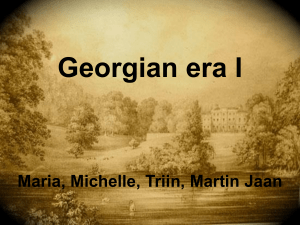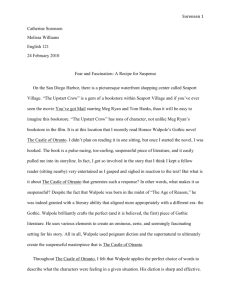Osorio
advertisement
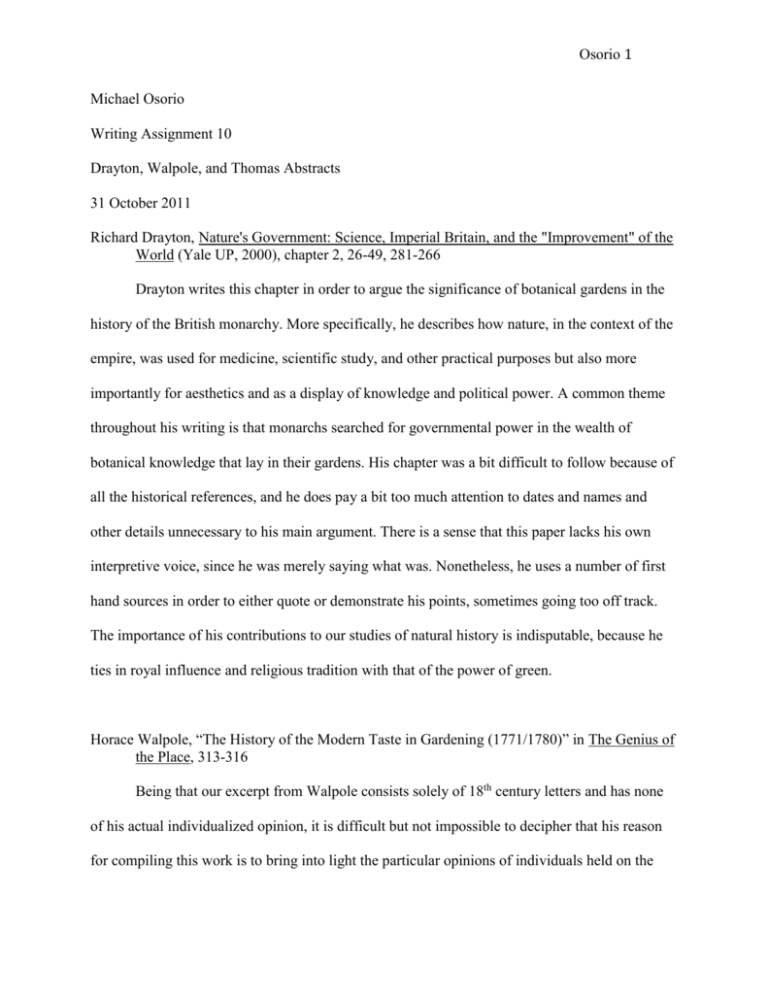
Osorio 1 Michael Osorio Writing Assignment 10 Drayton, Walpole, and Thomas Abstracts 31 October 2011 Richard Drayton, Nature's Government: Science, Imperial Britain, and the "Improvement" of the World (Yale UP, 2000), chapter 2, 26-49, 281-266 Drayton writes this chapter in order to argue the significance of botanical gardens in the history of the British monarchy. More specifically, he describes how nature, in the context of the empire, was used for medicine, scientific study, and other practical purposes but also more importantly for aesthetics and as a display of knowledge and political power. A common theme throughout his writing is that monarchs searched for governmental power in the wealth of botanical knowledge that lay in their gardens. His chapter was a bit difficult to follow because of all the historical references, and he does pay a bit too much attention to dates and names and other details unnecessary to his main argument. There is a sense that this paper lacks his own interpretive voice, since he was merely saying what was. Nonetheless, he uses a number of first hand sources in order to either quote or demonstrate his points, sometimes going too off track. The importance of his contributions to our studies of natural history is indisputable, because he ties in royal influence and religious tradition with that of the power of green. Horace Walpole, “The History of the Modern Taste in Gardening (1771/1780)” in The Genius of the Place, 313-316 Being that our excerpt from Walpole consists solely of 18th century letters and has none of his actual individualized opinion, it is difficult but not impossible to decipher that his reason for compiling this work is to bring into light the particular opinions of individuals held on the Osorio 2 garden. The fact that in this particular excerpt we find no contribution from the writer diminishes from the strength of his argument based on what we were given. But there is little doubt that Walpole would provide ample reasoning on his own part throughout the book. The letters were the absolute number one source for finding out what men in the 1700s thought about gardening because that’s exactly what they are: personal letters written between men (living in that era) on what they thought about the style and method of gardening. Despite the value of this being a primary source, it has a downside with being a bit difficult to follow because of the style these men of the past write in. Confusing details and thoughts that may have nothing to due with the main topic take away from the effectiveness of Walpole’s use of these sources. However, I am sure that if I were to analyze Walpole’s actual writing, he would make a decent argument on the essence of the value of the garden in 18th century England. Keith Thomas, “Cultivation or Wilderness?” Man and the Natural World: Changing Attitudes in England, 1500-1800 (New York: Oxford UP, 1983), 254-269 In his work, Thomas traces the chronological development of popular opinions regarding encounters with nature and also goes a step further by critically analyzing their formation. Thomas’ research is very similar to Cronon’s in that they both regard a change over time of views about nature. However, Thomas is different because he is not arguing that our idea of nature is wrong, but instead he takes the time to decipher what forces have had significant influence on its change, and why. To kick-off his chapter, he makes it clear that for people in the 17th century: “The cultivation of soil was a symbol of civilization” (255). And from his historical observations he comes to the conclusion that “Neatness, symmetry and formal patterns had always been the distinctively human way of indicating the separation between culture and nature” (256). And Thomas goes about his other historical observations in a similar fashion, Osorio 3 supporting them with what he claims to be the biggest factor influencing them, whether it be landscape paintings, or mystical searches for God, or the people’s economic relationship with the land, or even the stage of industrialization of the world at that point in history. Thomas’ style is like that of a highly analytical storyline, making it interesting for his readers and easy to follow while at the same time incorporating sources to provide ample evidence for his findings. Although similar to an article we read early on, I find the different perspective of this author to be a valuable source of factual and reasoned knowledge in our road to understanding encounters with nature.
